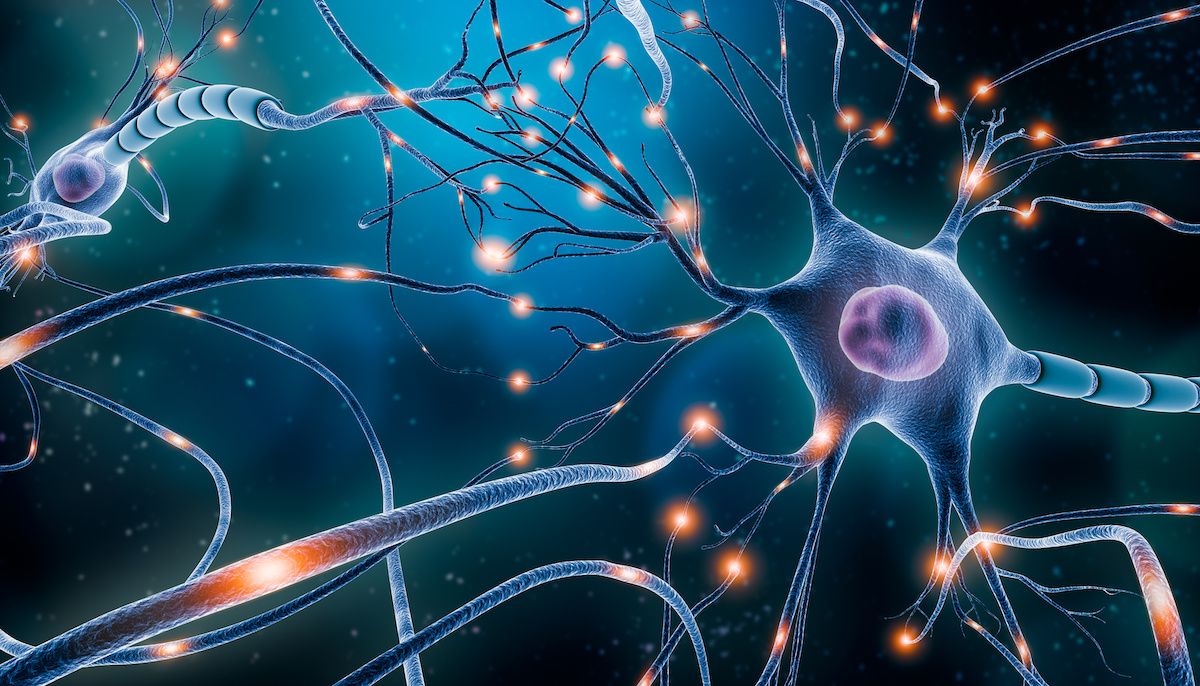
Neurology
Latest News
Latest Videos

More News

Experts at an Institute for Value-Based Medicine event held October 14, 2025, in Aurora, Colorado, explored advances in neurology care, cross-specialty collaboration, and strategies to improve access and therapy.

Ken Cohen, MD, FACP, discusses how clinicians can support patients after a cognitive screening to identify meaningful next steps.

Medicare expenditures for patients with amyotrophic lateral sclerosis are more than 3 times those of the average Medicare beneficiary, and drug therapies are an important cost driver.

Lesion-based disconnectome mapping suggests that the pattern, not the quantity, of brain damage determines cognitive outcomes in patients with MS.

Navigating treatment for multiple sclerosis and comorbid inflammatory diseases presents unique challenges, requiring careful, interdisciplinary strategies for optimal patient care.

Givinostat shows promise in delaying Duchenne muscular dystrophy (DMD) progression, enhancing mobility, and maintaining safety in long-term treatment.

New insights reveal how early intervention in radiologically isolated syndrome can delay multiple sclerosis (MS) onset and improve patient outcomes.

New findings demonstrate an association between increased cumulative depression genetic burden and multiple sclerosis (MS) disease activity.

DYNE-251 received FDA breakthrough therapy designation, showcasing its potential for patients with Duchenne muscular dystrophy (DMD).

Shipment of delandistrogene moxeparvovec, a gene therapy for Duchenne muscular dystrophy (DMD), will resume following a voluntary pause.

Supplemental Nutrition Assistance Program (SNAP) benefits may slow cognitive decline in older adults, highlighting the importance of food assistance in combating Alzheimer disease and dementia risks.

Discover the latest insights on pediatric-onset multiple sclerosis, emphasizing early intervention and high-efficacy therapies for improved outcomes in children.

Quantitative muscle ultrasound correlates strongly with ambulatory and timed function tests in Duchenne muscular dystrophy, suggesting it could complement or even replace more burdensome assessments.

The 16-person, first-in-human study showed promising safety and efficacy data for delivering insulin intranasally in older adults.

Pediatric patients with multiple sclerosis (MS) face significant challenges transitioning to adult care, risking treatment delays and long-term health outcomes.

TAS-205 showed no significant impact on motor function in patients with Duchenne muscular dystrophy (DMD), highlighting the ongoing search for effective treatments for the rare condition.

Families caring for individuals with Duchenne muscular dystrophy (DMD) face significant financial burdens from necessary home and vehicle modifications to enhance quality of life.

The findings support the clinical benefits of delandistrogene moxeparvovec in patients with Duchenne muscular dystrophy (DMD).

African American and Latino older adults with Alzheimer disease and related dementias and their families are likely to face disproportionately high burdens, primarily associated with unpaid caregiving, suggesting the need for policies that may reduce economic burdens for all US residents.

Advancements in gene therapy for Duchenne muscular dystrophy (DMD) have improved the outlook for some patients, but further innovations in safety, efficacy, and treatment strategies are needed.

Explore 5 rare genetic and neurological disorders named after pioneering women in medicine, highlighting their significant contributions to previously unknown conditions.

The FDA cleared marketing for the first in vitro diagnostic device that tests blood to aid in diagnosing Alzheimer disease.

Delandistrogene moxeparvovec (Elevidys; Sarepta Therapeutics) appeared to protect muscle from progressive damage in patients with Duchenne muscular dystrophy (DMD) based on muscle quantitative magnetic resonance measures.

The remote measurement tool enables Duchenne muscular dystrophy (DMD) assessments through analysis of caregiver-recorded videos.

In 2025, each issue of Population Health, Equity & Outcomes will feature a profile of a health system leader transforming care in their area of expertise. This issue spotlights a conversation with Kavita V. Nair, PhD, of the University of Colorado Anschutz Medical Campus.












